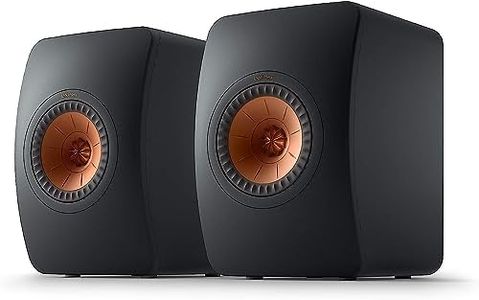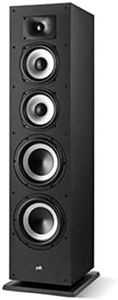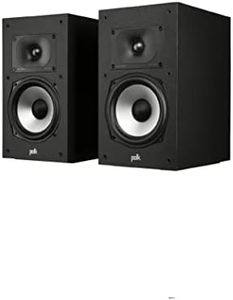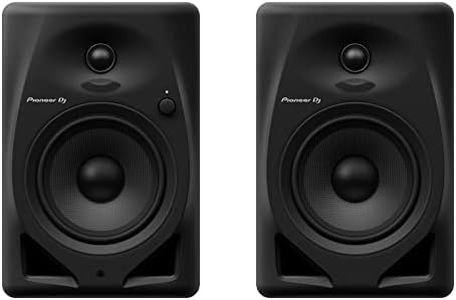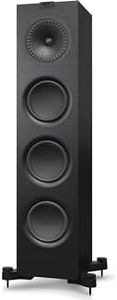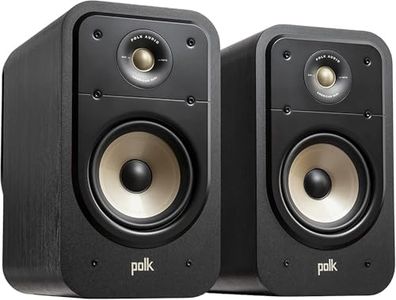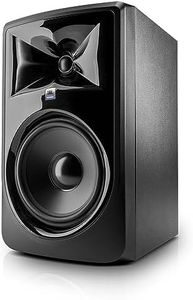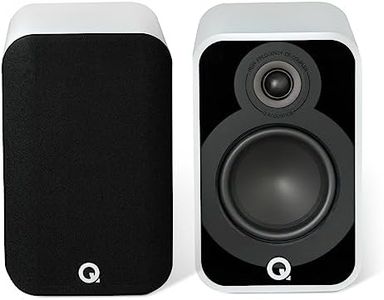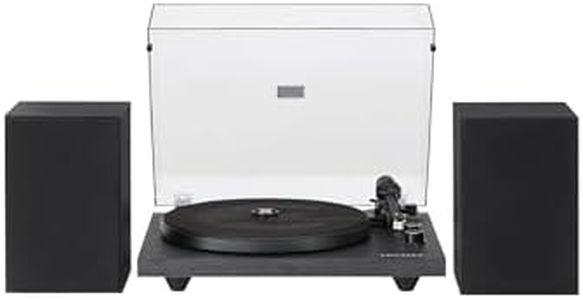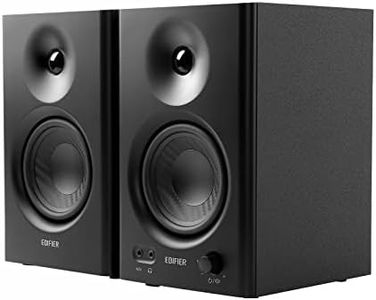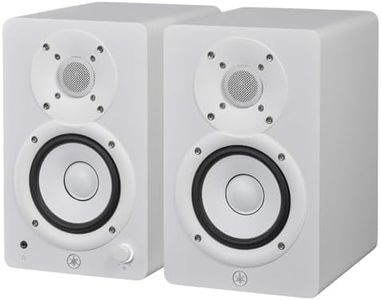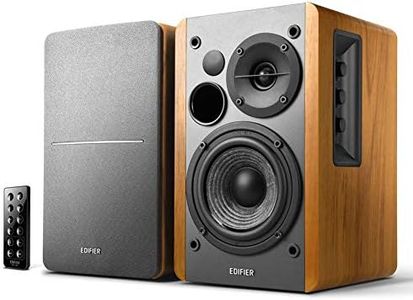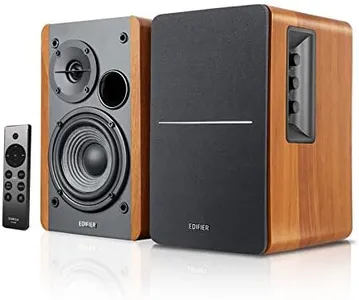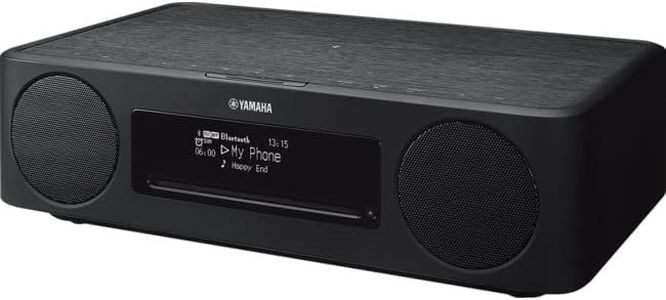We Use CookiesWe use cookies to enhance the security, performance,
functionality and for analytical and promotional activities. By continuing to browse this site you
are agreeing to our privacy policy
10 Best Speakers For Vinyl Record Player
From leading brands and best sellers available on the web.By clicking on a link to a third party's website, log data is shared with that third party.
Buying Guide for the Best Speakers For Vinyl Record Player
Choosing the right speakers for your vinyl record player is essential for getting the best listening experience. Vinyl records can sound warm, rich, and full of detail when paired with good speakers, but the wrong choice can make your setup sound flat or muddy. Before buying, think about what kind of sound quality you want, the size of your room, and how you'll connect the speakers to your record player. Remember: not all speakers will connect directly to a turntable – sometimes you might need extra equipment like an amplifier or a phono preamp.Speaker Type (Passive vs. Active)Speakers can be passive or active. Passive speakers need to be connected to a separate amplifier, while active speakers have an amplifier built in. This spec matters because it determines how you set up your system and what other equipment you’ll need. Passive speakers are common in traditional hi-fi setups, often chosen by enthusiasts who want to customize their sound with different amps. Active speakers are easier for beginners since you can just plug them in and start playing. If you want a simple, all-in-one setup, active speakers are often best, but if you enjoy upgrading and tweaking, passive might be more your style.
Connectivity OptionsConnectivity refers to how your speakers connect to your record player or other audio components. Some speakers have only standard wired connections, while others might also offer Bluetooth or AUX options. This is important because it affects which devices you can use with the speakers. If your record player has a built-in preamp and standard outputs, almost any speakers will work. If not, you may need a separate preamp for passive speakers. If you want versatility to use the speakers with other devices (like streaming music from your phone), look for models with Bluetooth or extra input options.
Size and Power OutputSpeaker size and power output affect how loud and full the sound can be. Bigger speakers and higher power typically offer deeper bass and fill larger rooms, while smaller models are good for bedrooms or offices. When looking at power, speakers are usually rated in watts. For small spaces, lower wattage (15-40W) is often enough. For bigger rooms or if you like to play music loudly, look for higher power output (50-100W or more). Pick the size and power that matches both your space and how you plan to use the speakers.
Frequency ResponseFrequency response tells you what range of sound (from low bass to high treble) the speakers can reproduce. A wider range means the speakers can handle deeper bass and higher treble, which helps music sound more full and realistic. Typical specs might look like '50Hz-20kHz'. For most listeners, a response starting at 50-60Hz is good for balanced bass, but if you want really deep bass, look for lower starting numbers. Choose based on the kind of music you enjoy – bass-heavy music benefits from a wider, lower range.
Impedance and SensitivityImpedance (measured in ohms) and sensitivity (measured in decibels) relate to how speakers interact with an amplifier and how easily they play at a given volume. Most home speakers fall between 4 to 8 ohms. Higher sensitivity means speakers can play louder with less power, which is helpful for low-powered setups. For most vinyl listeners, sticking with standard options (6-8 ohms and around 85-90dB sensitivity) works well. If you already have an amplifier, check what impedance and sensitivity it supports and match your speakers accordingly.
Sound Signature (Tone/Balanced/Enhanced)Sound signature refers to the general tone of the speakers—whether they produce more bass, more treble, or keep everything balanced. Some speakers offer a 'flat' or true-to-source sound, which is great if you want to hear music as it was recorded. Others enhance certain frequencies, like extra bass or brighter highs, which might make some genres more exciting. Think about your music taste—jazz and classical often sound best on neutral, detailed speakers, while rock, pop, or electronic fans might prefer a bit more punch. Listening to demo tracks (if possible) can help you figure out your preference.
